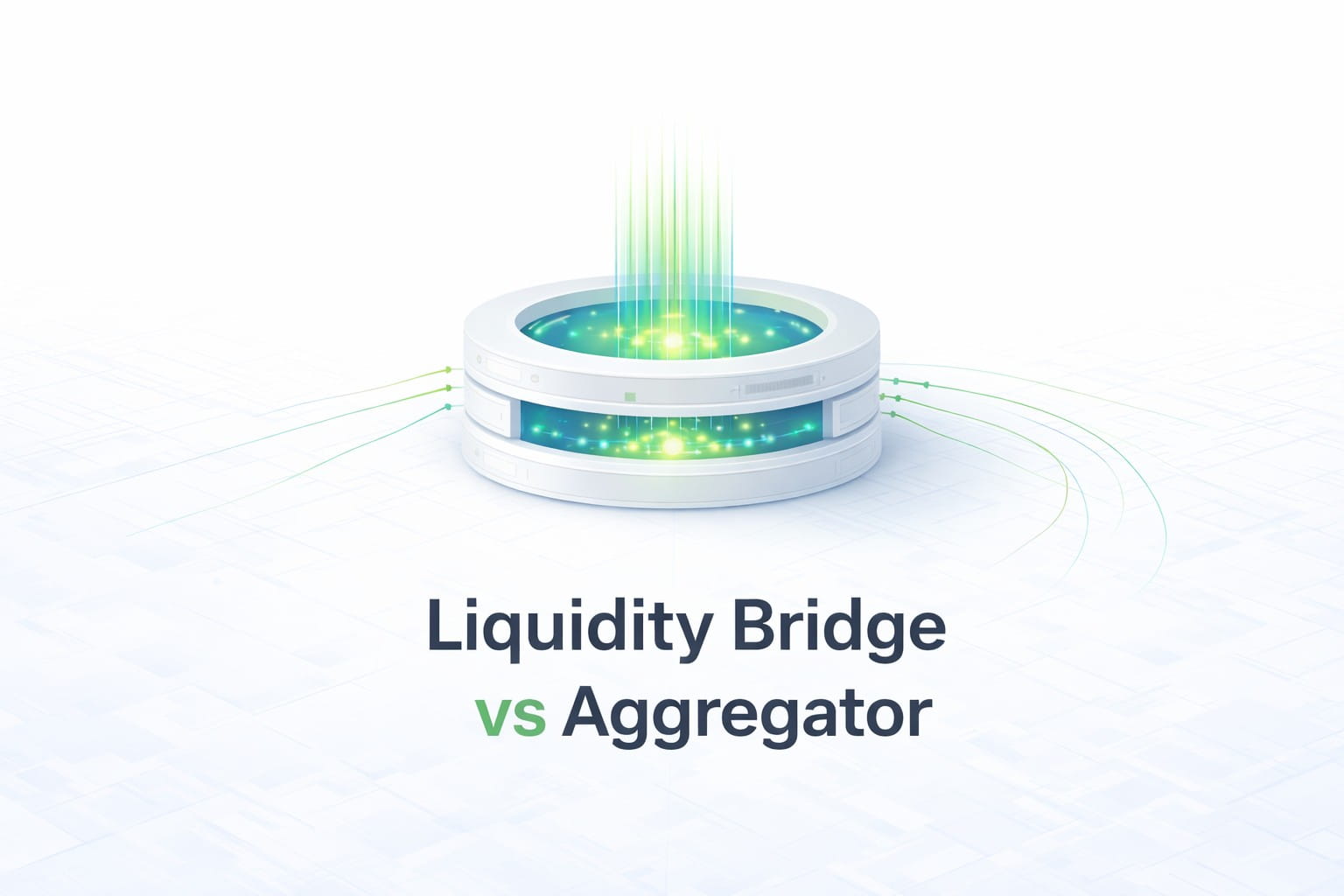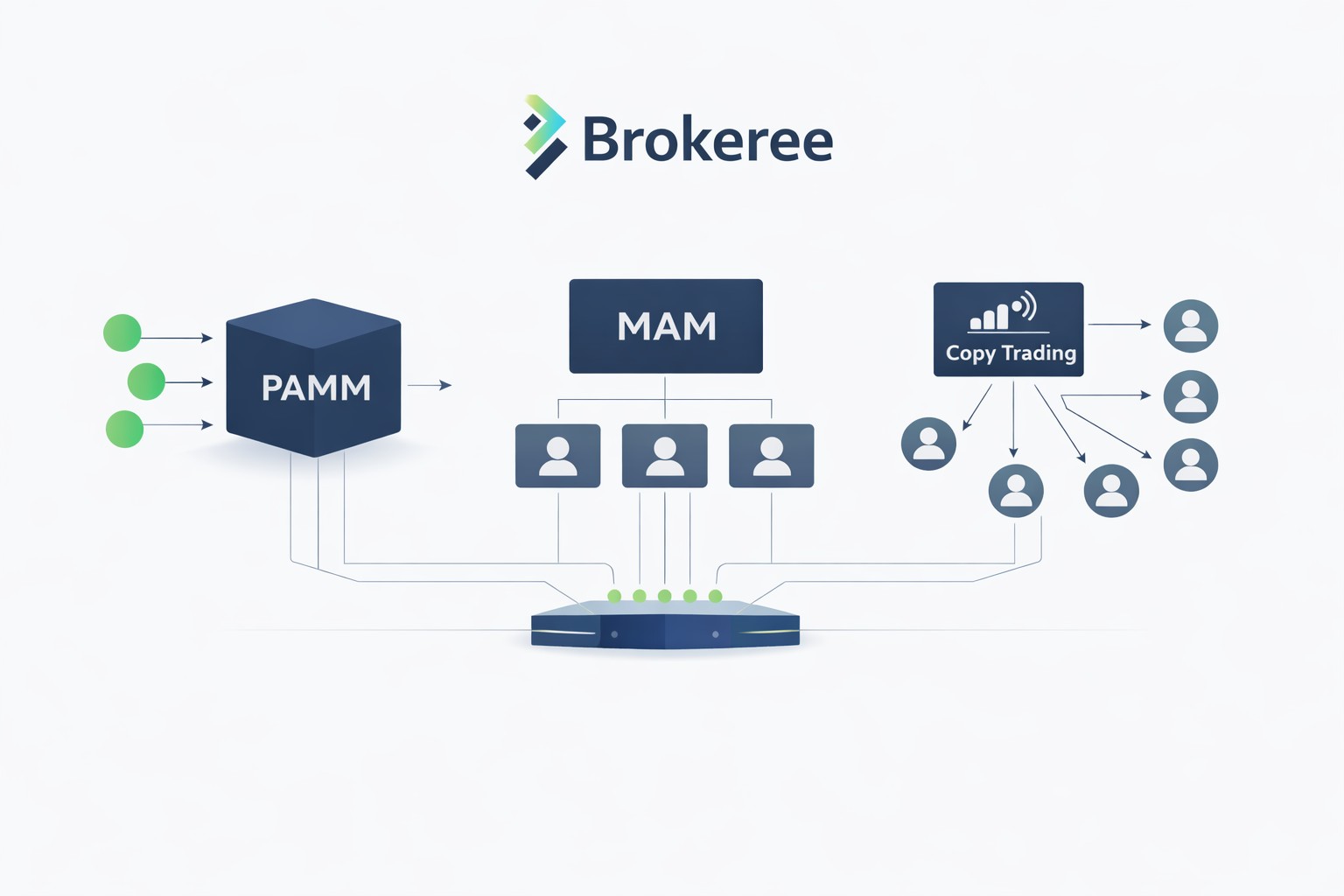Prop trading has carved a space for itself in the trading industry. Many brokerages are exploring this model as an alternative or addition to traditional retail forex operations.
While both retail and prop trading involve access to the same financial markets, they have different business models. This difference affects how capital is allocated, risk is managed, and revenue is generated at the firm level. Let’s look at it in more detail:
TL;DR: Prop trading vs. retail forex trading
| Category | Proprietary Trading Firm | Retail Forex Brokerage |
| Trading Capital | Firm’s own capital | Traders deposit funds |
| Client Funds | No client fund management | Traders funds held and managed |
| Risk Exposure | Firm carries full trading risk | Traders bear their own trading risk |
| Revenue Model | Profit split with traders | Spreads, commissions, and fees |
| Regulatory Oversight | Often lighter or unregulated (jurisdiction-dependent) | Regulated financial entity |
| Client Acquisition | Traders attracted by funded account opportunities | Traders recruited for self-funded trading |
| Operational Complexity | Simplified without client fund management | Requires traders onboarding, KYC, fund security, withdrawals |
What is retail forex trading?
In retail forex trading, individual traders open accounts with licensed brokerages to access the foreign exchange markets. The trader deposits their capital into the account and places trades directly through the broker’s platform. The broker provides the necessary trading infrastructure, including market access, liquidity, leverage, margin, and execution.
Retail brokers generate revenue by charging spreads, commissions, or a combination of both. Some also offer additional services such as market analysis, trading tools, or educational content to attract and retain clients.
What is prop trading?
In prop trading, traders operate using the firm’s capital instead of their own. They provide access to trading accounts, platforms, and funding while the trader executes strategies within predefined risk limits. Profits generated from trading are typically split based on agreed terms.
Prop firms assess trader performance through evaluation processes or trading challenges. Once a trader qualifies, they receive a funded account and are allowed to trade under the firm’s guidelines.
Prop trading firms generate revenue from two main sources: the profit share from successful traders and the fees paid by applicants to take the evaluation. Since client fund management is not involved, the operational structure tends to be more streamlined, with fewer regulatory obligations in most jurisdictions. However, many prop firms still implement internal controls and compliance standards to manage risk and maintain operational integrity.
Also read: How Prop Trading Solutions Drive Business Growth.
Top 5 differences between prop trading and retail forex trading
1. Source of trading capital
One notable feature is that prop firms do not handle clients’ funds. Unlike traditional brokers who manage and safeguard their clients’ capital, prop trading firms utilize their own capital for trading activities. This approach eliminates the need to handle customer deposits, simplifying the operational aspects of the business.
Since there is no need to process deposits, withdrawals, or manage account balances for individual clients, prop trading firms can allocate their resources more efficiently towards their core trading activities. This can lead to increased operational agility and the ability to adapt swiftly to market changes.
2. Risk management
In retail forex, individual traders carry all trading risk. Losses directly reduce the trader’s account balance. The broker is not financially impacted by the trader’s decisions beyond normal exposure management practices.
For prop trading firms, risk management is handled at the firm level. Since the company’s own capital is at stake, prop firms invest heavily in monitoring trader behavior, enforcing position limits, and using automated risk controls. Many firms require traders to adhere to strict daily loss limits, stop-losses, and position sizing rules. Some trader-funded firms also integrate third-party risk management tools to monitor and control exposure in real-time.
3. Regulatory requirements
By not holding clients’ funds, prop trading firms avoid many of the regulatory requirements and obligations that traditional brokers must adhere to. As a result, prop trading firms can focus more on optimizing their prop trading strategies and performance without the additional burden of managing and safeguarding client assets.
Nowadays, there is a heated discussion among experts about how regulators will respond to the growing interest in prop solutions. Despite the different views on the nature of the upcoming regulations, there is practically no doubt that the introduction of requirements for prop firms is just a matter of time.
Therefore, for the promotion of prop brokerages, it is essential to comply with common ethical standards and to maintain mutual respect for clients, building trusting and transparent relationships with them from the outset.
4. Client acquisition and conversions
Retail brokers often face pressure when it comes to acquiring new clients. Traders need to fund their accounts, take full risk, and navigate the learning curve largely on their capital. For many, especially those new to trading, these factors create hesitation.
Prop trading firms approach client acquisition differently. The offer of firm-funded accounts attracts traders who have developed skills but may not have access to substantial personal capital. Rather than asking traders to deposit large sums, prop firms provide them capital based on their performance. That is why this structure appeals to skilled traders who may not have enough funds to trade.
5. Exposure risks
In prop trading, all the exposure sits with the firm. The moment a trader gets funded, the firm assumes the risk associated with every trade. That’s why strong risk controls are built into the business from the start. The firm needs to balance providing capital with protecting it, which is why position limits, daily loss thresholds, and monitoring systems play such a central role.
Conclusion
Prop and retail trading serve the same markets but operate differently. Each model requires its own infrastructure, regulatory approach, and operational strategy. Understanding these differences clearly is essential for any brokerage to evaluate its next steps.
Learn more about Prop Pulse — a powerful account management solution for proprietary trading firms.
Frequently asked questions
- Is prop trading regulated?
Prop trading firms typically face lighter regulation compared to retail forex brokerages since they do not deal directly with client deposits. However, regulatory frameworks are evolving in many jurisdictions, and it is advised to monitor local requirements closely.
- Do prop trading firms manage client funds?
No. Prop firms use their own capital and do not hold or manage funds deposited by external clients. Traders operate with the firm’s capital under set risk parameters.
- How do prop trading firms make money?
Revenue is generally generated through profit sharing with traders and evaluation or challenge fees during the onboarding process. Profitability depends on both trader performance and effective risk management.
- Who carries the trading risk in prop trading?
The firm carries the full financial risk on every funded account. This is why most prop firms maintain strict risk controls and monitoring systems to protect capital.
- Can a brokerage operate both retail and prop models?
Yes. Some brokers offer both traditional retail brokerage services and separate prop trading programs. Each model requires separate infrastructure, policies, and compliance frameworks.




